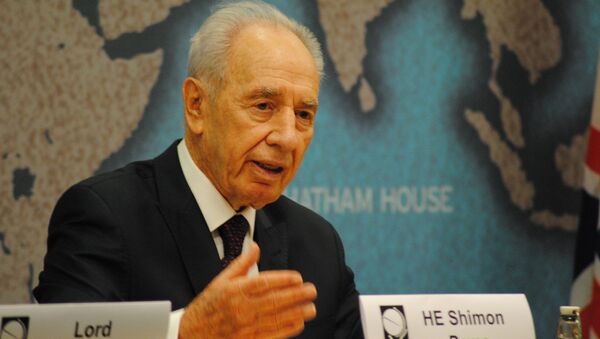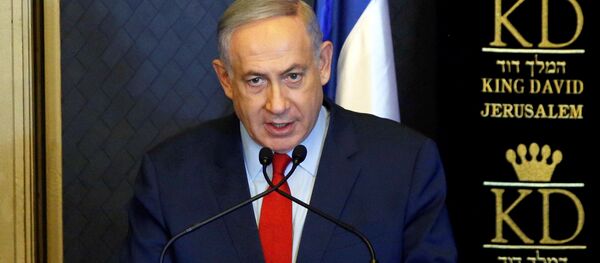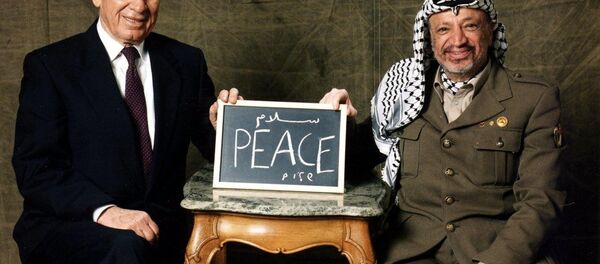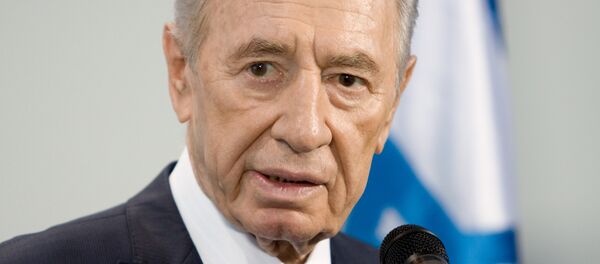The family immigrated to Palestine and settled in Tel Aviv, where Peres attended school and the Ben Shemen agricultural school. He lived on Kibbutz Geva for several years then Kibbutz Alumot, during which time he married Sonia and worked as a shepherd. In 1947, upon David Ben-Gurion's request, Peres was recruited by the Haganah (pre-independence military organization), and he assumed a pivotal role in many state-related missions.
According to the Peres Center for Peace, following the establishment of the State of Israel in 1948 Peres headed the naval services, and in 1949 led a procurement delegation of Israel's Defense Ministry to the United States, undertaking evening studies at the New School for Social Research in parallel. On his return to Israel at the age of 29, he became the Director General of the Ministry of Defense – the youngest ever in Israel's history.
After the resignation of Yitzhak Rabin in 1977 Peres became acting Prime Minister, and was later elected Chairman of the Labor Party, running against Menachem Begin in the national elections. When Likud came to power in 1977, marking the first time in Israel's history that Labor was not the ruling party, Peres served as Head of the Opposition, a position he held until 1984.
Following the establishment of a National Unity Government combining Labor and Likud in 1984, Peres served as Prime Minister (1984 to 1986) and as Minister of Foreign Affairs (1986 to 1988), rotating with Likud leader Yitzhak Shamir. In the subsequent National Unity Government (1988-1990) Peres served as Vice Premier and Minister of Finance, and then led the Opposition in the Knesset from 1990 to 1992.
After the Labor Party's victory under Rabin's leadership, Peres served again as Minister of Foreign Affairs in 1992, and initiated the negotiations between Israel and the Palestine Liberation Organization (PLO), resulting in the Oslo Accords (Declaration of Principles) which was signed by Shimon Peres and Abu Mazen on the White House lawn on 13th September 1993. Peres, together with Rabin and Arafat, were awarded Nobel Peace Prizes in 1994 for their efforts toward peace. Peres was also involved in Israel's negotiations with Jordan, which commenced immediately following the signing of the Oslo Accords, and were officially signed in October 1994.
Following the assassination of Prime Minister Rabin in 1995, Peres became Prime Minister and Minister of Defense until the May 1996 elections. Following his defeat, Peres invested his efforts in creating and establishing the Peres Center for Peace – a non-government and non-partisan organization that brings Israel and its Arab neighbors closer by means of peace-building projects which focus on common social and economic interests, thereby fulfilling his vision of regional cooperation.
In June 2007, Peres was elected to serve as the 9th President of the State of Israel, a position he held until 2014. In June 2012, Peres was awarded the highest US award in the realm of peace by President Barack Obama, the Presidential Medal of Freedom. Peres has authored numerous books and articles. His standing and reputation have earned him international recognition among the nations and leaders of the world. Shimon Peres was married to his late wife Sonia. They have three children, eight grandchildren and three great-grandchildren.





